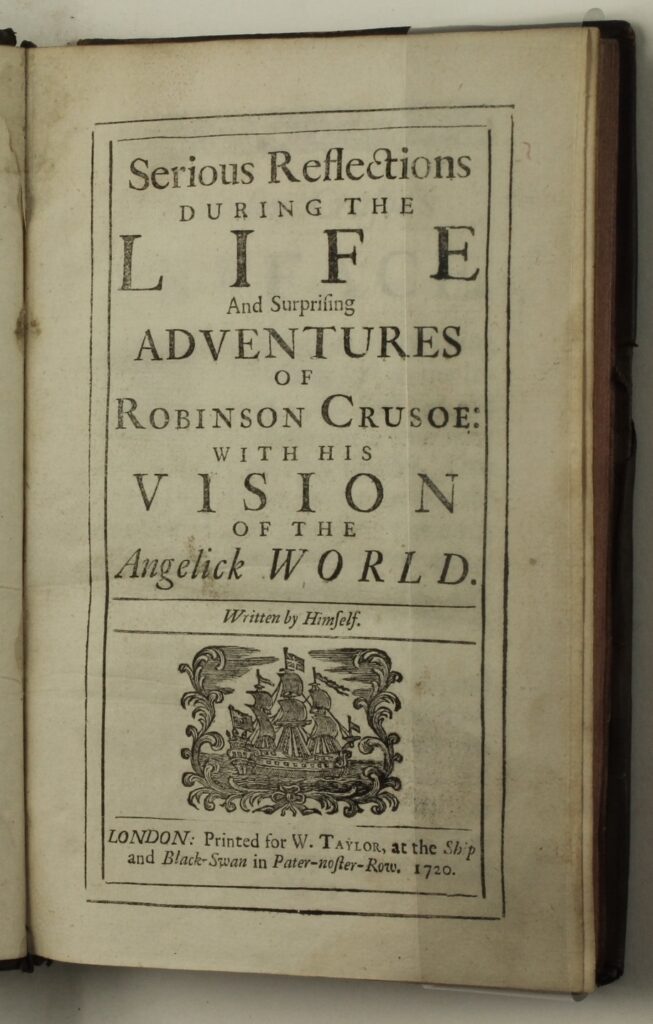Mark McKillion, Ulster University MA History graduate and volunteer for the Library in 2022, carried out research on Daniel Defoe’s Serious Reflections During the Life and Surprising Adventures of Robinson Crusoe: With his Vision of the Angelick World (1720) (object ID P001427632).
You can adopt this book for £250, and support the work of the Library, caring for our wonderful collections, and inspiring present and future generations!
As the third book in Daniel Defoe’s series of books which serve as travelogues for their titular protagonist, Serious Reflections appears to emphasise Crusoe’s role as a man of great imagination, to the extent that he admits to the reader that just as he possessed “an invincible Inclination to travel, so I think I travelled as sensibly to my understanding, over all the Mazes and Wastes of infinite Space.”[1]
Unlike the previous two novels, which depicted Crusoe as an active player in describing the events he witnessed, Maximillian Novak suggests that Defoe intended to contemplate Crusoe’s role as both a fictional character created by mental and imaginative processes and as a human being undergoing a process of introspection,[2] with Crusoe himself reasoning that “Life in general, is, or ought to be, but one universal Act of Solitude.”[3]
The first Robinson Crusoe novel, according to Martin J. Greif, served as both a practical man’s account of his experiences living in isolation from civilised society as well as a story with an underlying moral intent, as Crusoe would consult his Bible in times of crisis throughout the story. Defoe himself supports this notion in Serious Reflections, describing his previous work as a parable that represents “the beautiful representation of a life of unexampled misfortunes.”[4]
As a result, Serious Reflections builds upon Crusoe’s established sense of morality and forms a new motivation in the form of his desire for a greater understanding of the universe: in the section “Present State of Religion in the World”, he acknowledges the limitations of the human mind and therefore chooses to conduct research on the places he has already travelled to,[5] declaring that he ‘resolved to travel over the rest of the World in Books.’[6]




